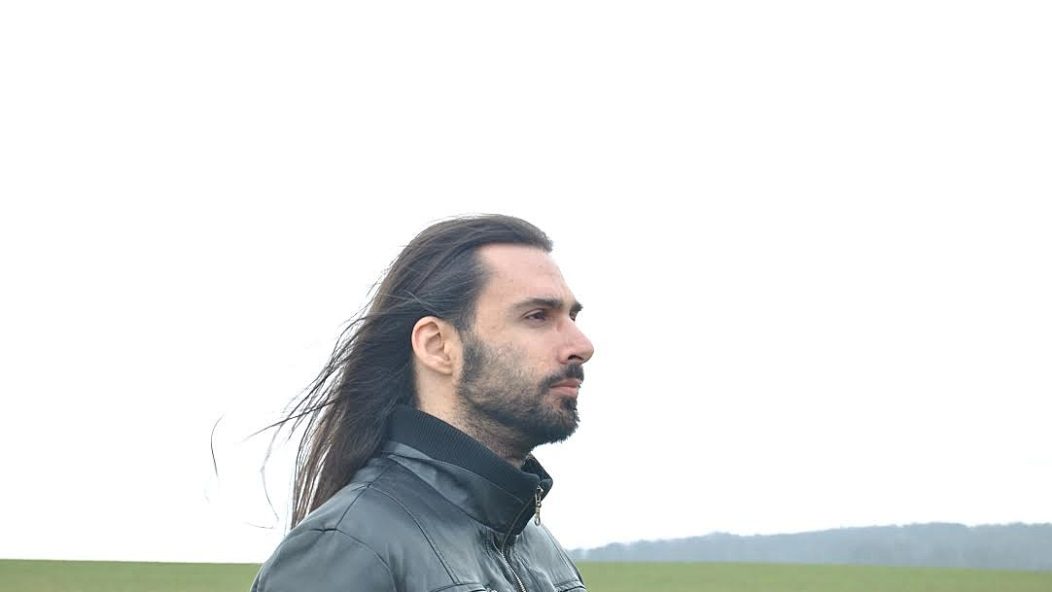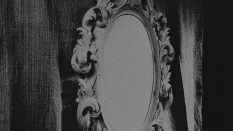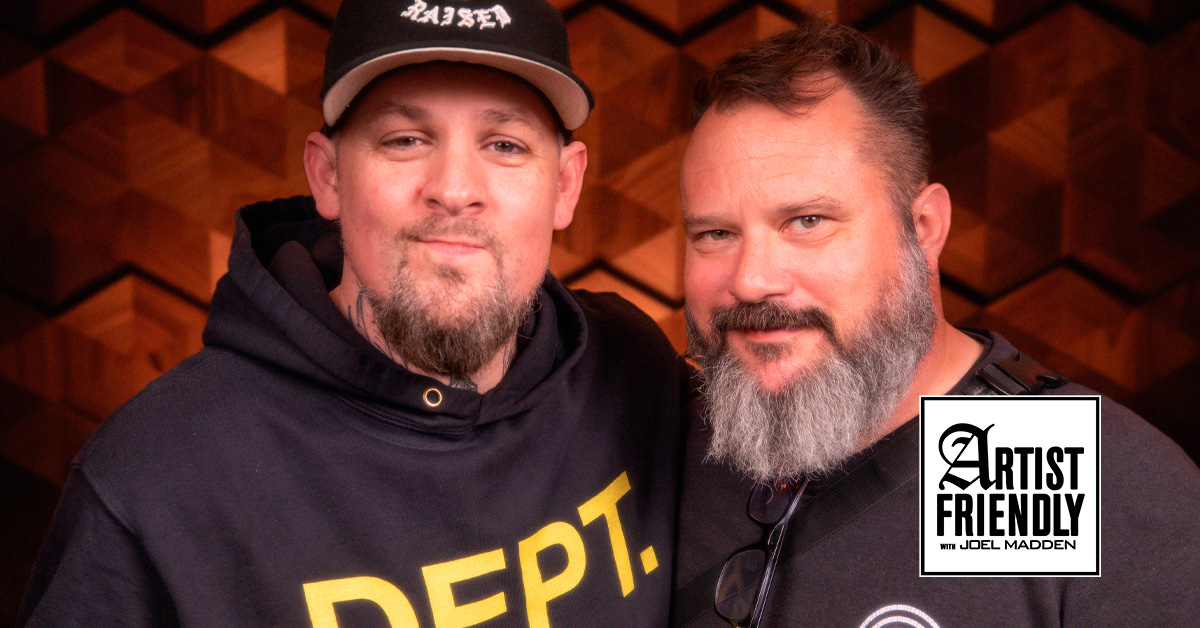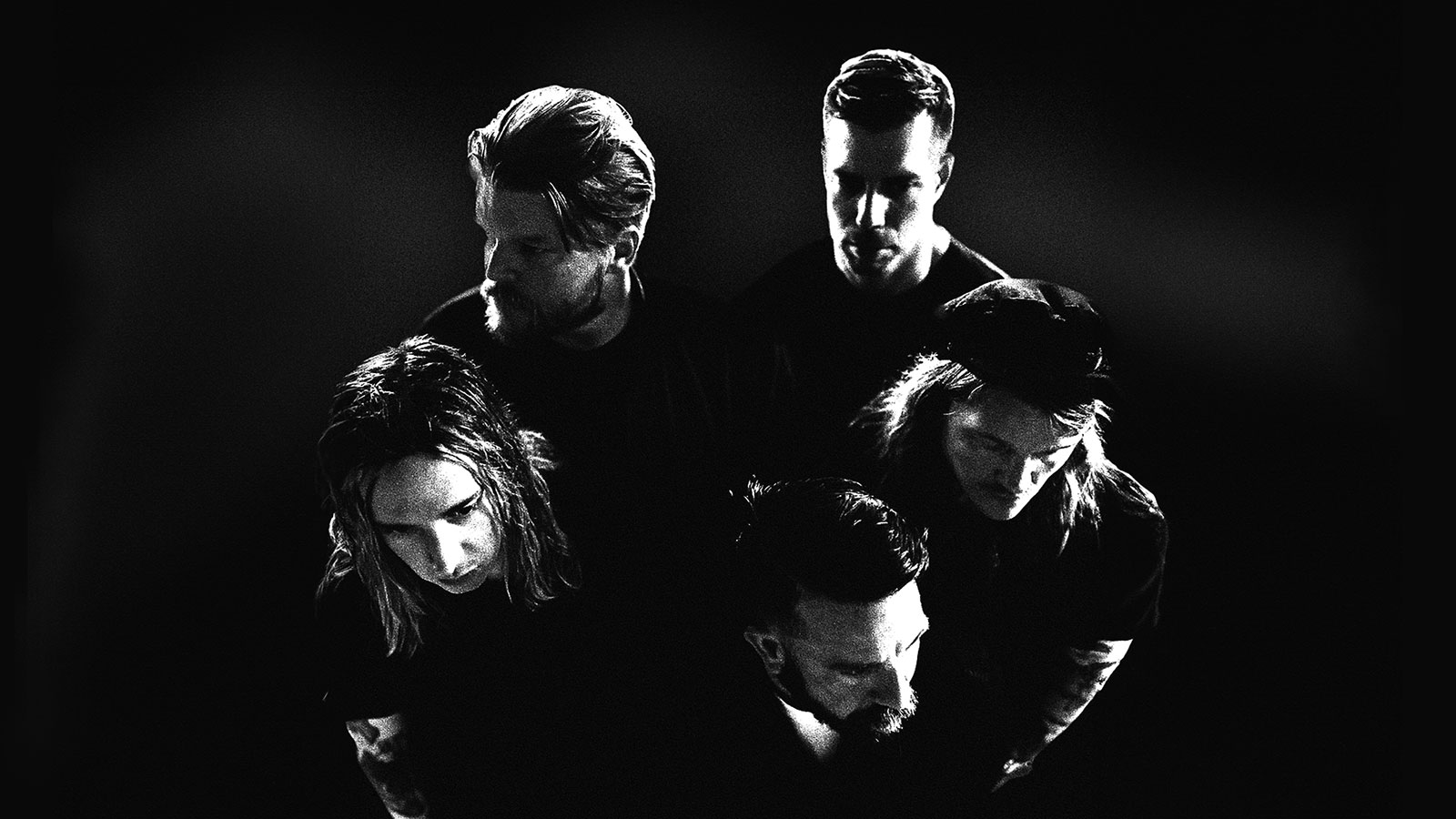
Interview: Ayloss (Spectral Lore & Divine Element)
…
Ayloss, the mastermind behind the black metal project Spectral Lore, recently spoke to Invisible Oranges about his background, music, and revitalized death metal project Divine Element. Along the way, he touched on the metal scene and notions of truth in heavy music, and where exactly his latest material fits. He also uncovered some of the mechanisms which drive both him and his music forward into new territories.
Spectral Lore is best known for 2014’s III, a one and a half hour long magnum opus on the functions of intensity, climax, and transcendentalism in modern black metal, with an atmospheric twist. Since, Ayloss has taken to lighter and more ambient expressions through Spectral Lore with the experimental triage of Voyager, Gnosis, and Fossils. Later this year we’ll see a new Spectral Lore split and full-length, though details are still forthcoming.
Divine Element came first, but was placed on hold for a number of years, until now. An uncanny mixture of classic, avant-garde, and epic death metal, Divine Element showcases a fresh side to Ayloss’s fluent and multifaceted guitarwork. Their new album Thaurachs of Borsu was released on May 19 via I, Voidhanger Records. A book of the same title by Ayloss is also in the works to round out the entire package.
…
…
What stands out in your mind when you reflect back on where you started and where you are now?
One defining moment came in the beginning, even before I had released the first Spectral Lore album. I had uploaded some songs on a site called download.com, which was once thriving with cool unknown bands. I hadn’t partaken in the tape trading era, so as weird as it may sound, it was my first taste of an interesting underground scene. The tracks didn’t receive any attention at all, so I came to the conclusion, in typical post-adolescent drama, that the world was not ready for my music, nor deserved it. I took the name “Ayloss”,which means immaterial in Greek, and decided that I would simply do it for myself and nobody in the real world would ever know it was me. Obviously, I did not quite keep the promise, but it still gave me a strong sense of independence in the beginning, allowing me to do whatever I wanted without regards for acceptance. What I’ve learned later, is that such idealisms can be useful, but also very restricting, while inevitably turning on you.
The place I’m in now is that I’m interested in music as a two-way communication path. I still want to do my thing of course, but I’m often thinking about how it affects the audience. If I see that there might be a harmful side to it, for instance, I’m willing to process it. I haven’t started making music for other people, but I’ve acknowledged that my music lives in a social space, as I do. As long as my music communicates interesting things, I will be releasing it. From the moment and on that it becomes a self-affirming, obsolete, conservative time-waster, I’ll return it back to where it came from.
While you don’t write your music for others, your music does live in a social space. How and where do Spectral Lore and Divine Element fit into a larger scene, perhaps as influences themselves? Feel free to define the scene however you see fit.
Τhat’s a great question, one that I’ve been doing to myself a lot lately, and I haven’t come up yet with a satisfying answer. There’s no doubt that both projects are self-consciously metal – Spectral Lore to a lesser degree – and it’s true that we owe metal a lot, so hopefully we are also giving something back in the process. At the same time, I believe it’s important to say that I’m not as enthusiastic to be part of it – especially in the black metal scene, which had been my early “school” – as I was ten years ago. Metal suffers from a kind of stagnation that is brought by several reasons. I believe it has stopped seeing itself reflectively, or its watching itself constantly from a limited angle. [It] is mostly a formulaic rehash οf already explored material, with some isolated elements perfected obsessively, and a lot of others that really matter more left intact. A kind of conservatism that runs in deeper than musical roots.
Still, this is exactly that social space that my music lives in, and what other choice do you have anyway but to find your congregation upon people with similar tastes? So, I’m not giving it up for sure. I believe it’s even more important for metalheads nowadays to have one foot outside the circle. There’s something in metal indeed which is eternal, fixed and out of this world, but there’s also a lot which is real and mundane, which we should allow to change like the world around it. Don’t get me wrong; opposition, denial, will-to-power and stubbornness are still ever important, but we must at last process them and update them to the current age and not romanticized, nostalgic visions of the past.
All in all, I hope to see different, weirder, more inclusive, more transformative metal in the future.
As a musician experimenting with multiple sub-genres, how does your instrumental and technical fluency impact your ability to express yourself artistically?
There’s a positive and a negative side to technicality. The positive one is that I feel like I can write a good riff quickly, without any preparation or study. The negative one is that anything that comes easily to you, also makes you lazy. One tends to stick to similar patterns and aesthetics and avoid big-level planning, when writing on the instrument you’re most proficient in. I also feel that writing melodies that I can easily find satisfying has caused me not to focus enough in sound until now. Well, you must never be satisfied with what you have and the most important skill is to be able to put things in order in terms of importance and necessity.
Which song of yours is your most favorite to play?
I almost never play old songs of mine, I simply get finished with an album and start writing the next one. However, if there is one riff that I always remember how to play and comes to mind as the defining Spectral Lore riff, it’s the “The Thorns that Guide My Warpath” riff at 14:41 and generally the whole passage up to the ambient part.
…
…
You have a knack for “epic”: the triumphant, oceanic feeling, especially during climaxes. You’re extremely patient in building up to them. How do you connect the pieces leading up to these moments?
I’m not using any special compositional techniques such as these that classical composers do in order to achieve flow and cohesion, I just have the patience to mold everything little by little, mostly by trial-and-error. I believe dynamics and micro-processing are the key to my style of mixing. No instrument ever keeps the same sound from part to part. Equalizers, reverb sends, distortions, and levels all run amok, according to the needs of the song. I also don’t care about normal rules of orchestration, I guess. If I want a part with two guitars to be followed by a part with six guitars and a flute and a banjo, I’ll just put it and mold everything so that it ties together. In the end, it adds more colors and I think the result becomes less rock and more “orchestral” this way.
You used the word “orchestral” to describe your music. Aesthetically, this seems connected to the idea of transcendence, especially when black metal is involved: the wavering intensities of seemingly infinite layers of sound. What makes you feel transcendent?
That’s another great question. I think, besides your very correct description of multi-layered sound which might correlate to the vastness of universe, or the different layers of experience, it’s the changing of perspectives. In pieces of music that I love the most, there at least one violent change in viewpoint, a disclosure, a way that some material is presented and processed that is completely different to the first time that it appeared. Such “woah” and eureka moments create a defining experience in music for me, either it’s the climax in an orchestral piece, or just a subtle hint in a very minimalistic, ambient song.
You’re writing a book. Could you comment on how it interrelates with the new album?
The book is the new Divine Element album, Thaurachs of Borsu, on the grounds that it’s the same story, yet there are quite a lot of differences. What we tried to do with the lyrics is to convey a sense of the general themes of the story, while being as less particular as we could. That’s because we needed the lyrics to work on their own obviously, since the book is based upon a complex plot and a level of world-building which is even deeper. All these could only be alluded through metaphoric and abstract means. So, you only get a vague sense about what it’s all about right now, oriented around the actual story excerpts that we put on the booklet. There are also “hints” thrown, such as names of gods and places, that we’re going to explore in an interactive fashion, by posting artwork and lore material on our page before the book release. We hope to see people get hooked on that side too, and see this eventually as a literature project as much as a musical one. It’s a rather big promise and I confess that it’s 33% dream, 33% plan, and 33% reality at this point, but it’s slowly, though steadily, closing on towards the latter.
Do those two forms of expression differ in how they satisfy you as an artist?
It’s frustratingly much more difficult to write stories comparing to writing music, especially if one has grown accustomed to the second. You’re back at being a child that knows nothing, which also means however that all the excitement of discovery is reset to the starting point. Both are different ways of building a new world, so why should they not live harmoniously in the first place? Of course, reading a book takes quite longer than listening to an album, so you can’t exactly align them but the merging of both experiences can hopefully create a sum greater than its parts.
What was the impetus to bring Divine Element back out of storage?
Divine Element were just some 20-year-olds that dreamt about playing in a band and seeing their faces in mags along with those of their heroes in the beginning, quite the prototypical “first metal band.” We changed a lot of members and switched between different styles over the first years, with generally unsatisfying results, however what was atypical, for a first-timer band, is that we kept on despite all difficulties. It was our stubbornness most of all I believe. Or maybe that we really thought we were onto something.
Eventually we set on a lineup and although the individuals that comprised that band still came from different metal backgrounds, the mixing of styles eventually made sense to us. It was really about the gluing of the personalities. It’s there where I got the habit of putting together different genres of music and nowadays even , when I say to myself “play metal,” I’m immediately playing in the Divine Element style.
Bringing back Divine Element had nothing to do with the other (Spectral Lore) material that I was writing. Although the band had reached its limits with the debut album and two of the four members left afterward, Antonis and I never thought about dropping the band. It had to do with the aforementioned stubbornness and also, more importantly, our friendship over the years. We actually never stopped working, it was just a matter of right timing, coming up with strong new ideas such as the fantasy concept to get ourselves excited, and deciding we finally needed to step up our game and make it real.
…
…
How has collaboration with Antonis and Hannes Grossman influenced you as a musician and thereby Thaurachs of Borsu as an album?
On the personal side, Antonis has influenced me with his determination in making this album a reality, while we were working in a distance of over 900 kilometers, me staying in Greece and him traveling between Hungary and Germany, while we tackled every detail, putting concept and music together. Musically, he helped me understand clarity and rhythm in vocals much better. Plus, he always had something to say about song structure, correcting some of my over-indulgences. With Hannes Grossman, there wasn’t much interaction as he was a session player for the drums, but he did his job very professionally and quickly.
Any important differences between working with others and going solo?
It’s completely different working with people as opposed to working alone obviously, but it’s paramount to do it every now and then, especially for those with the impression that they can handle everything by themselves – that’s me. We’re echo chambers in our own and we can’t easily advance without exterior perspectives. Creativity and criticism from people whose vision and integrity you respect is a great gift, if one knows how to take it.
Did your sound gravitate toward the idea you originally had in mind, or did you discover something completely unexpected?
We already had our “new” sound before we started working on the album. The reason behind this was that a full-length had already been written before Thaurachs begun production, so in fact Thaurachs was placed as a sort of prelude to it, also in terms of theme. Thaurachs was actually intended to be an EP initially and we went forward with this material instead of the older, simply because the latter was too demanding and ambitious to pull off directly after such a long hiatus, not to mention a working method which was completely unknown to us until then. And it wasn’t just working from a distance, but also collaborating with a studio for reamping the instruments, mixing and mastering, which we both hadn’t done until the first album.
In any case, what we can safely say about the next full-length is that it’s longer, more epic and more varied and adventurous musically. Its theme is connected to Thaurachs and it’s going to be the culmination of material written in all of these years between the release of the first album and Thaurachs. We’ve certainly discovered things and evolved our sound up to now and will continue to do so.
…

…
To its benefit, Thaurachs of Borsu is less outwardly aggressive than I expected, though it has important moments of power/speed. What were the key emotional inputs driving the album, and how do they vary throughout?
The emotional inputs certainly are connected to the story, although we had a very abstract idea of what we wanted to say, when the first pieces of music were created. It was a constant process of feedback between the two that got them entwined and inseparable at some point. What we definitely knew that we wanted to express initially, is the feeling of exploration, the awe and will to power that evoke visions of far away, undiscovered, or unconquered places, the feeling of being a young adult out in a world full of wonder and opportunity, yet being placed with a huge burden on your shoulders at the same time.
Do you feel that Thaurachs of Borsu negates or rejects anything? Does the album stand up for something important or profound in terms of metal in general?
Well, nearly everybody would like to believe that what they’re doing is important and profound, it’s not up to them to decide. However, it’s true that we are a self-conscious metal band and that a big part of our approach has to do with metal itself and our assessment of it as a subculture and social space that we’ve spent a big part of our lives in. We are using tropes of metal and fantasy literature consciously, however what we have to say about them is not necessarily what a typical fan would expect. Let us take again the story analogy – a writer doesn’t necessarily condone the themes she or he uses. We have been using war as our primary theme from the first album. Although it would be a lie to say that we do not find the subject exciting, we absolutely do not praise it in the mindless, fetishistic way that some “extreme metal” does.
Take the cover indeed, for instance. What do these figures look to you? Heroes, villains or something in between? We’re used in metal culture to think in these self-affirming ways according to which we are the “true” ones and the rest of the world is corrupted, false, decadent, yet there isn’t so much black and white in our fantasy world, as there isn’t in the real one. Thaurachs of Borsu is a violent story. Violence is a terrible thing, yet sometimes it’s a legitimate, if not the only, choice. What we want is to draw the listener-reader to these spaces where these ambiguities are processed and settled, so they can discover something new either about the topic, or about themselves. So, obviously, not every lyric should be taken as a direct statement of the band; in fact it’s simply the main character speaking most of the time. The meaning can only be assessed totally, especially so after reading the book and going back to the lyrics.
You posited that “truth” in metal is often sought by listeners in terms of black and white, but that truth in reality is much more nebulous. Why is it, in your opinion, that people seek truth in music, or art in general? What types of truths, or maybe anti-truths, do Spectral Lore and Divine Element provide?
The importance of searching for truth is so much of a self-evident cliché these days that a lot of people obsessed with it seem to be actually wanting to hide things. And what bigger example there is here, but the “true metal” scene, of course. How is it that a lot of people that will berate you for any contradiction and change of opinion seem to be oblivious to the most evident of truths that lie just a bit outside their narrow-focused, personal view? Well, the answer I believe, is that greater truths nowadays are above us. They constitute in seeing the truth of others; those that are different to you, those that you find horrid, deviant, fake, evil, disgusting. In seeing that there’s a limit to you, but that you can get past it, if you abandon your self-centered, dominating outlook. After all, if there ever appears such a thing as the grand truth to us fleshy, limited beings, isn’t it more logical that it can only do so outside and upwards, on an emergent level? Let’s see if one day we’ll be able see the nebulous not as scary and disintegrating, but inviting, “divine” and “spectral”, if you wish, indeed.
…











